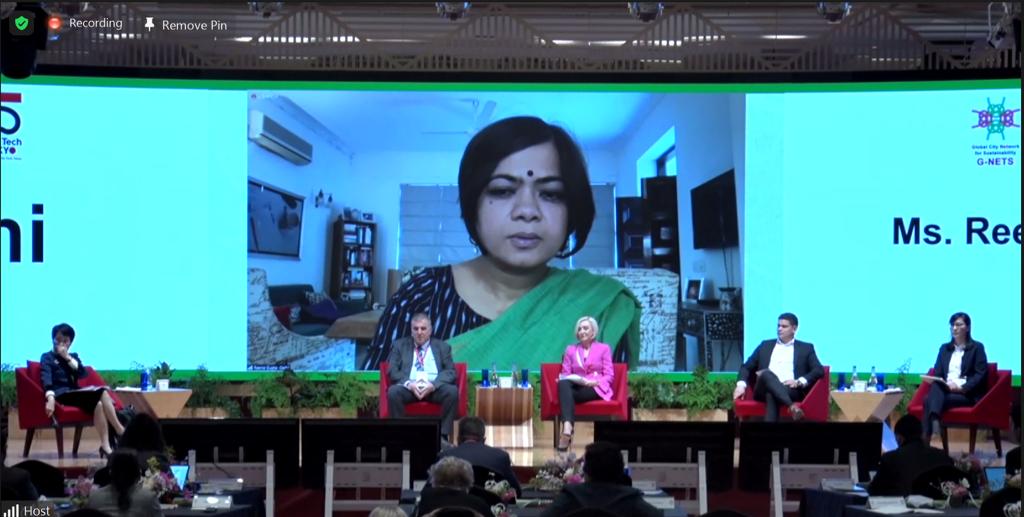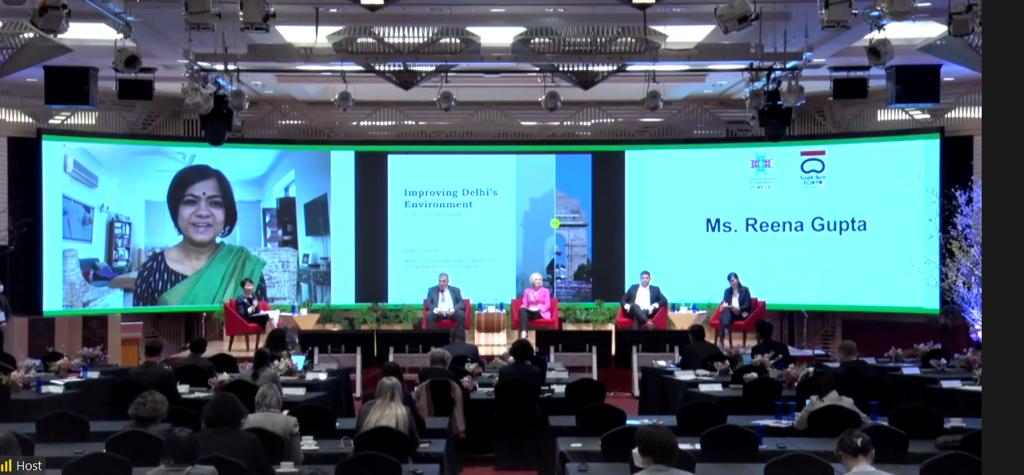Delhi was among the 30 cities selected for participation in Japan’s Global City Network for Sustainability (G-NETS) Leaders’ Summit (27th Feb – 1st March 2023). Based on the concept of a ‘just and sustainable post-Covid-19 society,’ the summit series focused on three main themes: Inclusive and Just Societies, Safe and Secure Cities, and Environment, providing an opportunity for city leaders to share strategies for sustainable recovery and future resilience, helping to pave a path to a brighter tomorrow.

Representing India’s capital at the summit, Smt. Reena Gupta, Advisor to the Environment Minister of Delhi, spoke about the city’s policy and mission to make Delhi greener and more climate-resilient under the leadership of CM Shri Arvind Kejriwal.
Over the last century, cities have grown in size and complexity, with climate change, health challenges, and rising inequality leading to an influx of people from one area to another. The next few years will be critical for cities as they decide on sustainable courses of action. Radical re-thinking, re-imagining, and re-engineering of sustainable and long-term solutions is the key to moving forward. By 2050, an estimated 70% of the world’s population will live in urban areas, and it is essential that cities work together to tackle these challenges.
The G-NETS forum was an ideal opportunity for Delhi and representatives from other cities to work together towards a better and more sustainable future. The role of cities in tackling challenges by adopting a multilevel, collaborative, and multistakeholder approach to decision-making and knowledge-sharing is crucial.
With a population of 18.98 million across 250 wards, Delhi is already setting an example for other Indian cities by reducing the average annual PM2.5 levels by 25%. The Government of NCT of Delhi under the Environment (Protection) Act 1986 has notified a draft policy to mandate the transition to a 100% EV fleet among aggregators and ride-hailing services by 2030, making Delhi the first Indian state to adopt an aggregator policy to regulate vehicular emissions from the ride-hailing industry. Additionally, guidelines are available to control the emission of construction dust from construction sites in Delhi.
The City of Lakes project is another remarkable example of sustainable urban development, changing the capital’s landscape, increasing water tables, and promoting biodiversity. Delhi also has the largest per capita forest cover of 9.6 square metres among all the megacities in the country.

Smt. Reena Gupta stressed on the role of citizens and the public in maximising the benefits of policy and government efforts. The ‘Green Delhi’ application is a grievance redressal mobile application to increase citizen participation and ensure timely action in Delhi’s fight against pollution. Any citizen in Delhi can report 14 different environmental violations, which are resolved by 27 civic agencies of Delhi in a time-bound manner. The app has recorded over 30,000 complaints and has a resolution rate of above 90%.
She emphasised that the sustainable future of Delhi lies in a smart and livable approach alongside the development of environment, energy, infrastructure, and transport. Cities must work together in close cooperation and, through their collective knowledge and experiences, address the huge challenge of rapid urbanisation and population growth.

